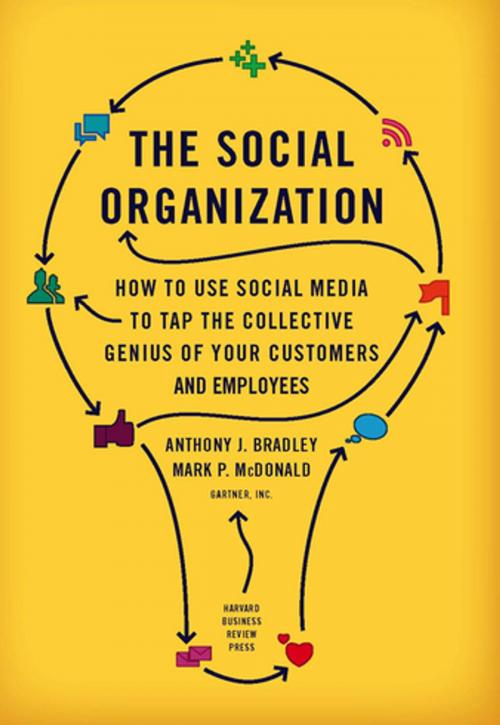The Social Organization
How to Use Social Media to Tap the Collective Genius of Your Customers and Employees
Business & Finance, Management & Leadership, Leadership| Author: | Anthony J. Bradley, Mark P. McDonald | ISBN: | 9781422142370 |
| Publisher: | Harvard Business Review Press | Publication: | September 27, 2011 |
| Imprint: | Harvard Business Review Press | Language: | English |
| Author: | Anthony J. Bradley, Mark P. McDonald |
| ISBN: | 9781422142370 |
| Publisher: | Harvard Business Review Press |
| Publication: | September 27, 2011 |
| Imprint: | Harvard Business Review Press |
| Language: | English |
As a leader, it's your job to extract maximum talent, energy, knowledge, and innovation from your customers and employees. But how?
In The Social Organization, two of Gartner's lead analysts strongly advocate exploiting social technology. The authors share insights from their study of successes and failures at more than four hundred organizations that have used social technologies to foster-and capitalize on-customers’ and employees’ collective efforts.
But the new social technology landscape isn’t about the technology. It’s about building communities, fostering new ways of collaborating, and guiding these efforts to achieve a purpose. To that end, the authors identify the core disciplines managers must master to translate community collaboration into otherwise impossible results:
Vision: defining a compelling vision of progress toward a highly collaborative organization.
Strategy: taking community collaboration from risky and random success to measurable business value.
Purpose: rallying people around a clear purpose, not just providing technology.
Launch: creating a collaborative environment and gaining adoption.
Guide: participating in and influencing communities without stifling collaboration.
Adapt: responding creatively to change in order to better support community collaboration.
The Social Organization highlights the benefits and challenges of using social technology to tap the power of people, revealing what managers must do to make collaboration a source of enduring competitive advantage.
As a leader, it's your job to extract maximum talent, energy, knowledge, and innovation from your customers and employees. But how?
In The Social Organization, two of Gartner's lead analysts strongly advocate exploiting social technology. The authors share insights from their study of successes and failures at more than four hundred organizations that have used social technologies to foster-and capitalize on-customers’ and employees’ collective efforts.
But the new social technology landscape isn’t about the technology. It’s about building communities, fostering new ways of collaborating, and guiding these efforts to achieve a purpose. To that end, the authors identify the core disciplines managers must master to translate community collaboration into otherwise impossible results:
Vision: defining a compelling vision of progress toward a highly collaborative organization.
Strategy: taking community collaboration from risky and random success to measurable business value.
Purpose: rallying people around a clear purpose, not just providing technology.
Launch: creating a collaborative environment and gaining adoption.
Guide: participating in and influencing communities without stifling collaboration.
Adapt: responding creatively to change in order to better support community collaboration.
The Social Organization highlights the benefits and challenges of using social technology to tap the power of people, revealing what managers must do to make collaboration a source of enduring competitive advantage.















